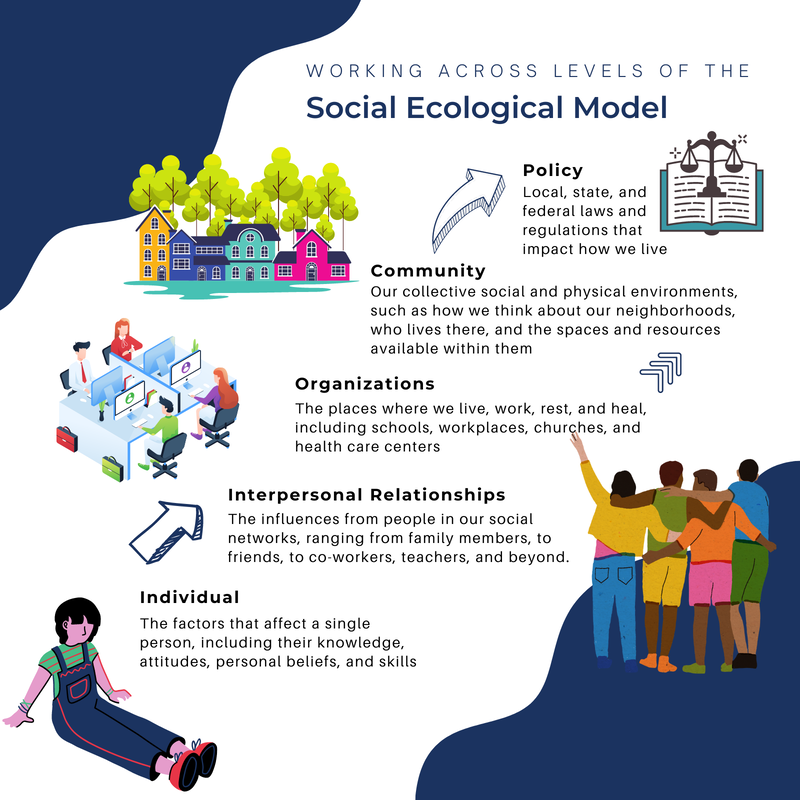What is the REACH Alliance?
The REACH (Racial Equity, Advocacy, and Community Health) Alliance at Rutgers University Center of Alcohol & Substance Use Studies (CAS) is a diverse group of researchers, students, community members, mental health service providers, and individuals with lived experiences who are dedicated to understanding and addressing health disparities caused by systemic racism.
This includes research on the many psychological, social, cultural, environmental, and policy-level influences on health outcomes, guided by the Social Ecological Model.
This includes research on the many psychological, social, cultural, environmental, and policy-level influences on health outcomes, guided by the Social Ecological Model.
What is our research about?Much of the research on health outcomes has focused on individual factors, overlooking the many broader influences on health. An individual focus on health disparities for marginalized groups only serves to deepen stigma and racism, without accounting for the myriad ways that systems contribute to discrimination and oppression for communities of color. The REACH Alliance is interested in improving racial health equity by working at multiple levels of the Social Ecological Model, over and above the individual. We are interested in understanding how personal relationships, organizational resources, and community cultures and identities influence health and wellbeing. |
What are the main goals of our research?
Research falls into three main areas:
|
Improving mental health treatments and resources, so that all people have access to support and care that recognizes and values their identities and experiences.
|
Throughout our work, we emphasize community-based participatory research and seek to meaningfully engage partners from communities of interest to actively contribute to all aspects of the work being conducted. Our primary goal is to find innovative, community-led ways to break down barriers to health equity for minoritized, underserved, and historically oppressed populations. Current projects focus on trauma, substance use, mental health service utilization, and promotion of culturally sensitive treatment.






